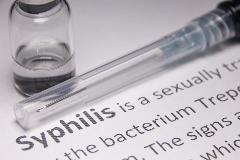 Doctors are urging the Federal Government to make a long-term investment in sexual health programs and services, including prevention, testing and treatment initiatives to address the ongoing syphilis outbreak affecting northern parts of Australia.
Doctors are urging the Federal Government to make a long-term investment in sexual health programs and services, including prevention, testing and treatment initiatives to address the ongoing syphilis outbreak affecting northern parts of Australia.
It follows confirmation earlier this month of another congenital syphilis death in Far North Queensland, the sixth fatality from congenital syphilis that has occurred in Northern Australia since 2011.
“We are extremely concerned about the growing number of Aboriginal and Torres Strait Islander people who are contracting these infections,” said Royal Australasian College of Physicians (RACP) President, Dr Catherine Yelland
“The prevalence of syphilis is highest in rural Indigenous populations and in some parts of Australia, the disease is now endemic.
“Pregnant women are particularly at risk because if they contract syphilis it can result in serious and sometimes fatal complications for their baby. It shouldn’t be this way, we can prevent and treat these infections through routine screening and treatment programs.
“We understand that the Commonwealth has developed an Action Plan to deliver short term responses to high rates of syphilis, with a focus on increasing testing, treatment, education, antenatal care and supporting an appropriately trained workforce.
“The recent death from congenital syphilis underlies the need to fund and implement this Action Plan without further delay.”
As detailed in its pre-budget submission, the RACP is recommending long-term investment in sexual health programs to accompany the Action Plan. It also wants to see a funded implementation plan for the Fifth National Aboriginal and Torres Strait Islander Blood-Borne Viruses and Sexually Transmitted Infections Strategy.
Dr Yelland said there needs to be a greater investment in Aboriginal and Torres Strait Islander sexual health services to improve people’s sexual health in the long-term.
“Aboriginal and Torres Strait Islander people must be pivotal in the development and implementation of these strategies. They are the ones who understand the health issues impacting their communities and can help ensure the services delivered are culturally safe.”
There were 28 new notifications of syphilis in North Queensland during October 2017, up from 12 notifications in the same period last year.